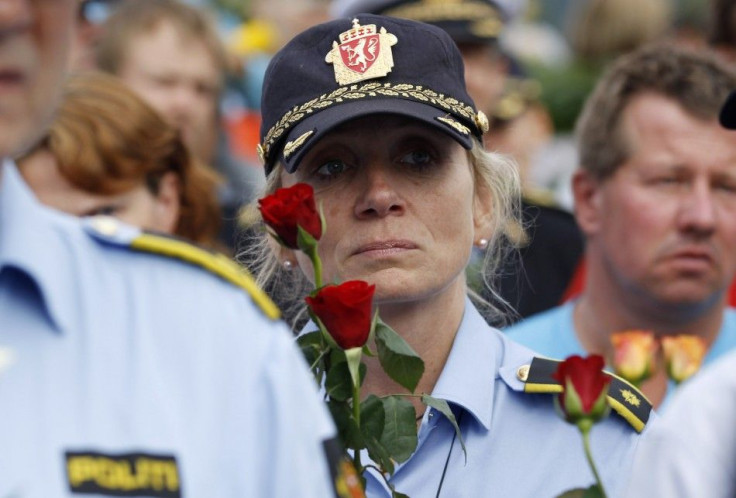Norway Police Respond to Criticism for Delay in Reaching Shooting Site

Police in Norway are defending the time it took for a SWAT team to reach the site of a shooting spree that killed 68 people, mostly teenagers and young adults.
The police have come under scrutiny in the last few days after reports emerged that it took an hour for responders to arrive to Utoya island, where Anders Breivik mercilessly shot young people who were there for a political retreat.
Much of the criticism has been focused on the fact that police traveled by land and water to reach the island, because a helicopter was not available.
It is believed that the police helicopter crew was on vacation.
In a press conference on Tuesday, Oslo Police Chief Johan Fredriksen said the focus on the absentee helicopter had been "blown completely out of proportion", explaining that the lack of resources was beyond the control of police.
"We are professionals, but we are only flesh and blood," the Wall Street Journal reported Fredrikson saying. "We don't mind scrutiny...[but] it's not the time for people to bring politics and issues of resource allocation into a situation like this."
The Wall Street Journal said in the same article that "overt criticism[sic] of police efforts haven't been widespread as the country continues to reel from the attack, and many have praised the police for their response under difficult circumstances."
The circumstances do appear to have been quite difficult.
In the absence of having an "operative helicopter" available, responders drove the 28 miles from Olso to Hoenefoss, which is on the edge of the Norweigan mainland, and it was there they ran into boat trouble.
After initial difficulty identifying a suitable boat, police eventually boarded one that could not adequately support the weight of their equipment, and nearly sank. Apparently, the boat kept filling with water as they tried to make their way across.
Early reports suggested that an off-duty police officer assigned to the island had neglected his post, but it turns out that Trond Berntsen was one of the gunman's first victims, and died shielding his 10-year old son from a bullet.
"I completely understand that for those caught in the line of fire as well as for their relatives the response time felt long," Sissel Hammer, chief of police of Nordre Buskerud police district, told The Telegraph. "However, I ask for understanding of the fact that the deployment of armed police personnel will always require time. Personnel need time to be equipped and armed as well as transported to the scene."
Fredriksen indicated at an earlier press conference that a helicopter would not have been an option even if one were available."The police helicopters are only useful for observation, not for transporting groups of police," Fredriksen said. "For transport we had to rely on assistance from the military."
When police finally arrived at the camp, they found dead bodies of young adults and teenagers -- possibly as young as 14 -- peppering the edge of the island, and terrified survivors having barricaded themselves in buildings.
Some who survived the massacre did so by playing dead -- laying themselves amongst a pile of corpses, where they could recognize friends who had been victims.
Others dove into the water and tried to swim away, but Breivik pointed his gun on those trying to flee, shooting into the water.
Breivik reportedly did not expect to even get as far as the island, telling his lawyer, Geir Lippestad, that he expected to be killed after bombing the Oslo city center, which is populated by government buildings.
"He was a little surprised he succeeded - in his mind succeeded," Lippestad said in a press conference. "He was expecting to be stopped earlier by the police or someone else during the actual day. He was surprised that he reached the island.
"He thought he would be killed after the bombing, after the action in the island, and he also thought he would be killed at the trial. He believes someone will kill him."
READ: Norway Massacre: Prime Minister Says Attacks a Catalyst for Increased Interest in Politics
© Copyright IBTimes 2024. All rights reserved.






















